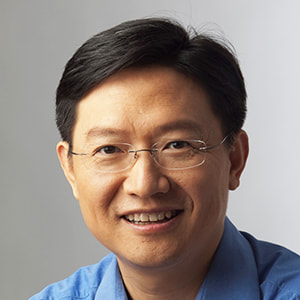|
Date: 26 October 2021 (Tuesday)
Time: 11am - 12pm Format: Zoom Webinar (registration is required) Hosted by: Xinyi SU, IMCB & ExCo SCSS |
ABSTRACT
Stem cells exhibit significant changes in cell states as they differentiate. Spatio-temporal modulation of the cell interactions with soluble & matrix environment, and neighboring cells in 3D culture in differentiation can significantly impact the final cell phenotypes and applications. Using 3 examples, I would demonstrate simple controls of these interactions. In an organoid-on-chip model, cells differentiated in situ as perfused organoids yield better function than organoids formed from differentiated cells. In iPSC-derived cell model, human Kupffer cells were generated from co-culture with hepatocytes or conditioned media yield extremely high function similar to the best primary human Kupffer cells. Finally, adult liver stem cells in a classical collagen sandwich model exhibit extra-ordinary cellular dynamics forming bile duct-like long tube structures that display events similar to bile duct development. Principles of controlling 3D cellular niche will be discussed, and if time permits, progress in SMART CAMP will be introduced.
BIO
Hanry Yu is Professor of Physiology (NUSMed) and Mechanobiology (MBI) at the National University of Singapore; and leads a Cell and Tissue Engineering group at the Institute of Bioengineering and Bioimaging (IBB), A*STAR; and co-leads a cell therapy manufacturing programme (CAMP) at the MIT research entity (SMART) in Singapore. He integrates biomaterials, tissue mechanobiology and engineering, biomedical optics and AI data analytics into solutions for pharmaceutical, environmental, and recently food industries. He has trained many students and staffs in leading universities in the US and Asia; built several institutions and companies, published >200 papers, delivered >250 invited talks, and is serving as a handling editor for Biomaterials.
Stem cells exhibit significant changes in cell states as they differentiate. Spatio-temporal modulation of the cell interactions with soluble & matrix environment, and neighboring cells in 3D culture in differentiation can significantly impact the final cell phenotypes and applications. Using 3 examples, I would demonstrate simple controls of these interactions. In an organoid-on-chip model, cells differentiated in situ as perfused organoids yield better function than organoids formed from differentiated cells. In iPSC-derived cell model, human Kupffer cells were generated from co-culture with hepatocytes or conditioned media yield extremely high function similar to the best primary human Kupffer cells. Finally, adult liver stem cells in a classical collagen sandwich model exhibit extra-ordinary cellular dynamics forming bile duct-like long tube structures that display events similar to bile duct development. Principles of controlling 3D cellular niche will be discussed, and if time permits, progress in SMART CAMP will be introduced.
BIO
Hanry Yu is Professor of Physiology (NUSMed) and Mechanobiology (MBI) at the National University of Singapore; and leads a Cell and Tissue Engineering group at the Institute of Bioengineering and Bioimaging (IBB), A*STAR; and co-leads a cell therapy manufacturing programme (CAMP) at the MIT research entity (SMART) in Singapore. He integrates biomaterials, tissue mechanobiology and engineering, biomedical optics and AI data analytics into solutions for pharmaceutical, environmental, and recently food industries. He has trained many students and staffs in leading universities in the US and Asia; built several institutions and companies, published >200 papers, delivered >250 invited talks, and is serving as a handling editor for Biomaterials.

